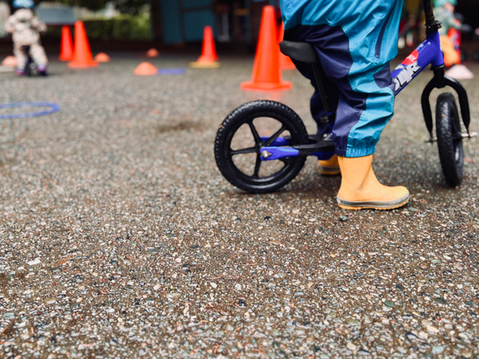What is learning through play?
Learning through play is a philosophy that supports children emotionally, socially, physically and intellectually. It recognizes each child as an individual with unique gifts and interests. Play emerges out of the interests of children: educators observe and reflect on their observations to enhance the play. Play involves experimentation and is often repetitive: children learn by constructing and testing their theories about the world. Learning is meaningful because it is rooted in the child's own desires and interests.
What does parent participation mean in a VICPA cooperative preschool?
Families in our program are actively involved in their child's education. Each family has a role in the running of the preschool and most families take on a "duty day" each month where they work in the classroom as a member of staff. This is a wonderful opportunity to spend time with your child and see how they spend their day. Jobs in the running of the preschool can be anything from yard maintenance to being on the executive committee in a role such as secretary or enrollment. The executive committee is a great chance to build experience that can transfer to the workforce, a PAC, or School Board Trustee. Parents are also involved in occasional fundraising initiatives throughout the year.
Interactive

Through engagement with peers, children learn to listen to and incorporate the ideas of others. Social play challenges children. What may look simple to adults is incredibly complex. Learning to see other viewpoints, waiting for a turn, and negotiating disagreements are kindergarten readiness skills. The educators support the children in finding solutions to their own problems, providing ideas or suggestions when required. Children grow confident as they gain the ability to navigate the social landscape with less and less support. Relationships with educators are supportive and reciprocal, which builds self esteem.
Joyful

Play is delightful and challenging socially, physically and intellectually. By allowing children to choose their own areas of engagement play becomes joyful and meaningful. Piajet describes play as "the world of children," how lucky children are to have "work" bring so much joy! Free play brings a sense of accomplishment, deepens knowledge in areas of interest and builds intellectual skills while children are joyfully engaged. Math, language and scientific concepts are integrated throughout the program in indirect ways that children engage naturally with.
Actively Engaging

Children make sense of the world through play that is linked to events, learning, or happenings within the community. Play allows children to construct their own knowledge of the world around them. Children build executive function skills through extended periods of focused play. Educators observe the children and add or remove elements from the space based on their needs. "Loose parts" are incorporated into the play space to build creativity. A wide variety of sensory and artistic opportunities are available to the children to promote emotional regulation.
Artistic

Art is a tool for exploration and self expression in our program. Artistic activities are available to children daily. We see crafts and art as two uniquely different activities. Art within our program is almost entirely directed by the child. This may mean that 100 pictures go home with the same brown paint as a child learns about art and self expression. Children are often exploring when they produce art and thus there is no goal in mind for the child. We offer occasional craft activities with a product goal in mind. These activities build multi-step direction capacity and are often connected to holidays or events.











